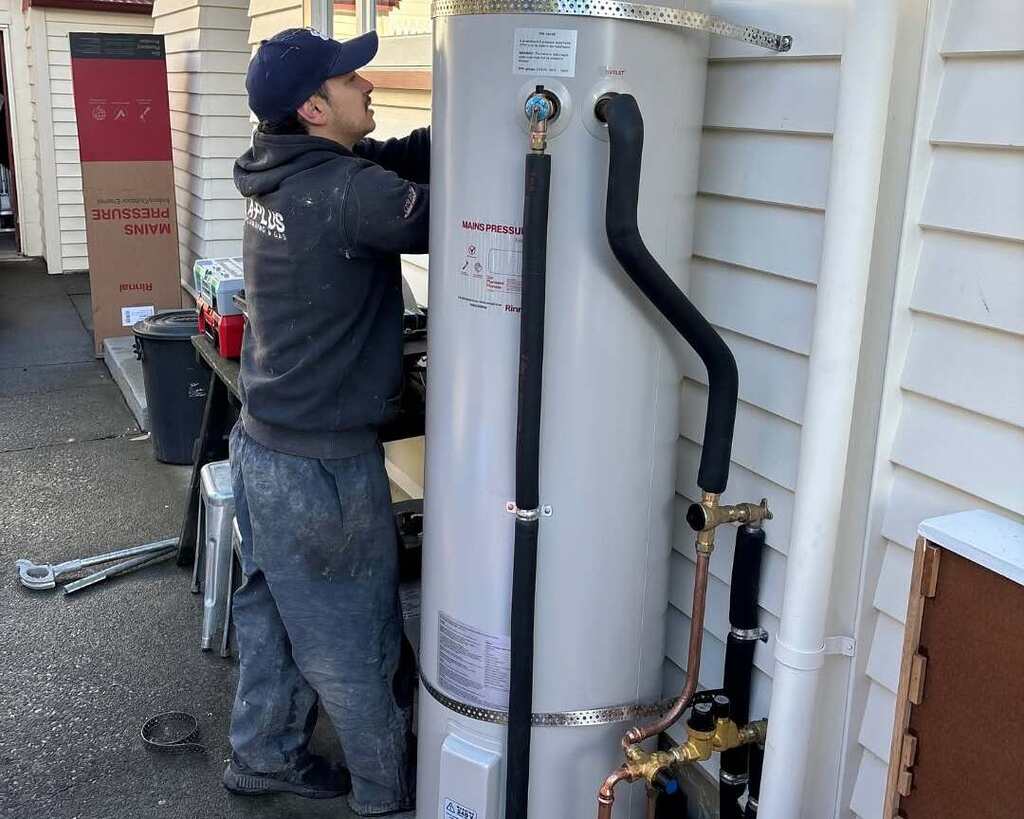A reliable hot water system is essential for any household, providing warm showers, clean dishes, and efficient laundry cycles. However, over time, hot water cylinders wear out, leading to inefficiencies, costly repairs, and even unexpected breakdowns. If you notice any warning signs, it may be time to replace your hot water cylinder to ensure your home continues running smoothly.
10 Signs You Need to Replace Your Hot Water Cylinder
1. Inconsistent Water Temperature
If your hot water supply fluctuates between hot and cold or fails to maintain a consistent temperature, your hot water cylinder may be struggling to perform. This could be due to sediment buildup, a failing heating element, or an aging system that can no longer function efficiently.
2. Discoloured or Rusty Water
Rusty or brown-tinted water coming from your taps is a major red flag. This usually indicates internal corrosion in the tank. As the lining of your cylinder deteriorates, rust and sediment accumulate in the water, affecting its quality and safety. If this issue persists, replacement is the best option to prevent leaks and potential water contamination.
3. Strange Noises from the Cylinder
A hot water cylinder should operate quietly. If you hear rumbling, banging, or popping sounds, this could signal excessive sediment buildup at the bottom of the tank. The hardened sediment forces the heating element to work harder, reducing efficiency and increasing wear and tear. If flushing the tank doesn’t resolve the issue, replacing the cylinder is a wise choice.
4. Leaks Around the Cylinder
Visible leaks or pooling water near the base of your hot water cylinder indicate serious structural damage. A leaking tank cannot be repaired effectively and poses a significant risk of flooding and water damage in your home. If you spot leaks, turn off your water supply and consult a professional plumber for immediate replacement.
5. Reduced Hot Water Pressure
Low water pressure in your taps and showers can result from mineral deposits and sediment buildup within the cylinder. Over time, these deposits restrict water flow, leading to inefficient heating and longer wait times for hot water. If professional cleaning doesn’t resolve the issue, it may be time to install a new system.
6. Water Takes Too Long to Heat Up
If your hot water system takes longer than usual to heat water, this could indicate a failing heating element or an aging tank that has lost efficiency. Instead of dealing with repeated delays, consider upgrading to a new, energy-efficient system for faster heating and lower energy bills.
7. Your Cylinder is More Than 10-15 Years Old
Hot water cylinders typically have a lifespan of 10 to 15 years. If your system is approaching or exceeding this age, it is at a higher risk of malfunctions, leaks, and inefficiencies. Replacing an old cylinder before it fails ensures you avoid unexpected disruptions and costly emergency repairs.
8. Higher Energy Bills
An aging or inefficient hot water cylinder often works harder to produce the same amount of hot water, leading to increased energy consumption. If you notice a spike in your utility bills without any other significant changes in usage, it may be due to an outdated system that needs replacing.
9. Frequent Repairs
If you find yourself calling a plumber frequently to fix issues with your hot water system, investing in a new hot water cylinder could save you time and money in the long run. Constant repairs indicate that your system is nearing the end of its lifespan and will only continue to deteriorate.
10. Foul-Smelling or Metallic-Tasting Water
A strong metallic taste or unpleasant odour in your hot water can be a sign of corrosion inside the tank. This is especially concerning if the water heater’s anode rod (which protects against rust) has deteriorated. When left unaddressed, this issue can lead to leaks and poor water quality, making replacement the best solution.
Choosing the Right Replacement Hot Water Cylinder
If you’ve noticed any of the warning signs above, it’s time to consider upgrading your hot water system. When choosing a new hot water cylinder, keep the following in mind:
- Capacity: Select a size that meets your household’s hot water demand.
- Energy Efficiency: Look for models with high energy ratings to reduce running costs.
- Type of System: Consider whether an electric, gas, or solar hot water cylinder is the best fit for your home.
- Professional Installation: A licensed plumber ensures safe installation and compliance with Australian standards.
Final Thoughts
A failing hot water cylinder can cause inconvenience, higher expenses, and potential damage to your home. By recognizing the early warning signs and acting quickly, you can ensure your household enjoys a reliable and efficient hot water supply. If your system is aging or frequently experiencing issues, replacing your hot water cylinder is a smart investment in both comfort and energy savings.

